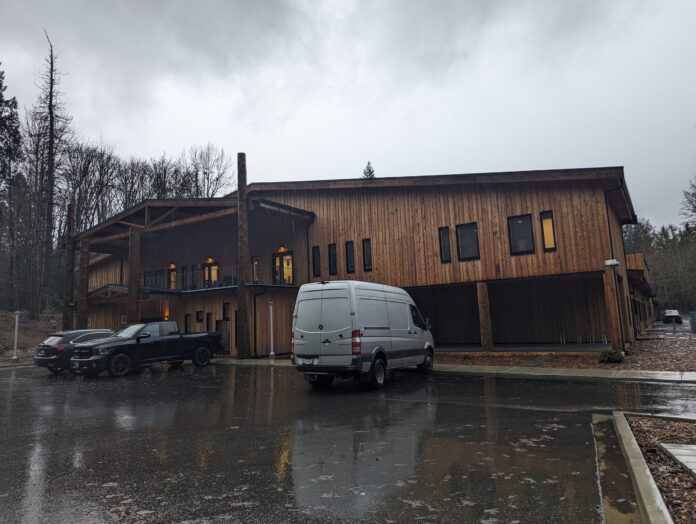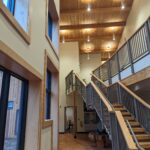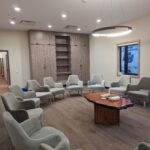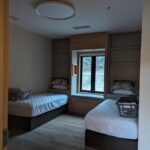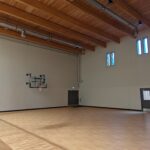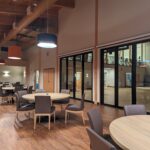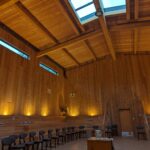The Tsow Tun Le Lum Healing House has opened the doors to its new Cowichan facility.
The decades-old organization deals with substance use and trauma treatment for Indigenous, Metis, and Inuit people from across BC and Yukon.
Their programs are structured with set intake and outtake times for each stream and focus on the healing of intergenerational wounds that Indigenous people grapple with.
“Our people, because of colonization and all of the impacts and effects of that, suffer from trauma,” says Tsow Tun Le Lum Executive Director Nola Jeffery. “People react to trauma in certain ways. I really believe that people use substances to cope with the pain.”
The society has done work for years, previously based north of Nanaimo. Their new $19 million facility just south of Duncan was needed after the lease on their previous property and the landowners chose not to renew the lease.
“Did I want to move? Absolutely not,” says Jeffery. “I didn’t think we would have to move, so no I didn’t want to.”
But the decision was made for their organization, and so the process began for a new home. Jeffery credits the First Nations Health Authority for their help, and for securing funding for the federal and provincial governments. She also sourced private donors who wanted to help bring their dream to reality. The board looked through other locations in Port Alberni and Nanaimo, before settling on the Cowichan site.
The new facility is located on Miller Road, in a wooded area just south of Duncan. The society is planning to be there for quite a while, with a 50-year lease on the land and two 25-year extensions possible.
“They [the government] thought that healing houses, which were called treatment centres, were something that maybe we [Indigenous people] needed for 10 or 15 years and then everyone would be okay,” she says. “But we know that’s not the case. Now we have one that might be here for 100 years.”
With the location change, there has been quite a bit of turnover in the staff.
“Huge turnover. People couldn’t find places to live down here and people didn’t want to drive from Nanaimo, Lantzville, and Parksville,” she says. “It’s a long travel. I bet over half of my staff are new.”
The facility itself is loaded with amenities. Among them, they’ve got 32 beds for attendees of their programs. They’ve got several group session rooms, a gymnasium with basketball nets, and a kitchen area. They’ve also got a breathtaking large room to be used for morning briefings and for ceremonies with family to celebrate program graduates.
As for the challenges faced by Indigenous people, she says the trauma experienced from colonization is intergenerational.
“People not only have their own personal trauma, but we pack historical trauma with us,” she says. “So all of my children have my trauma because I hadn’t done any healing work when I carried them, so I passed it on.”
She spoke on the impact of the 2021 discovery of 215 unmarked graves at a Kamloops residential school on Indigenous peoples across the country.
“We always knew that our children had been murdered, but it took a long time for people to believe that,” she says. “I think with the intergenerational survivors, it let go of a huge grief that they didn’t know they were carrying.”
While she’s not sure if that has lead to a prolonged impact on Indigenous people looking for help, she did see a surge in calls to their support phone line.
“When the announcement came,” she says. “We were answering that phone around the clock. We weren’t just getting calls from people in BC. Somehow our number got out and we were getting calls from across Canada, from intergenerational survivors, residential school survivors, and also non-Indigenous people.”
The Tsow Tun Le Lum Healing House is hosting its first group beginning this week with plans for a grand opening ceremony later this year.


